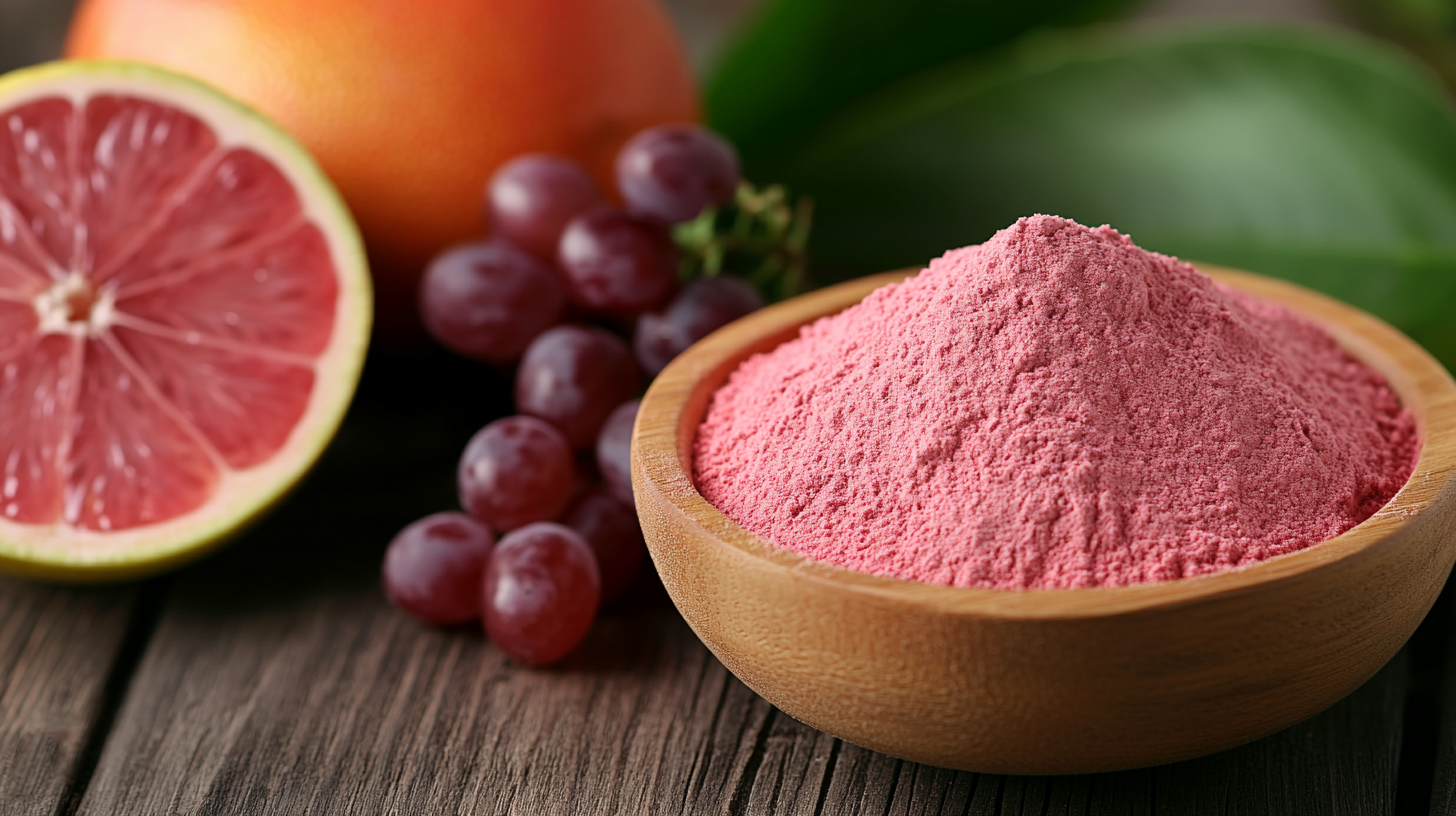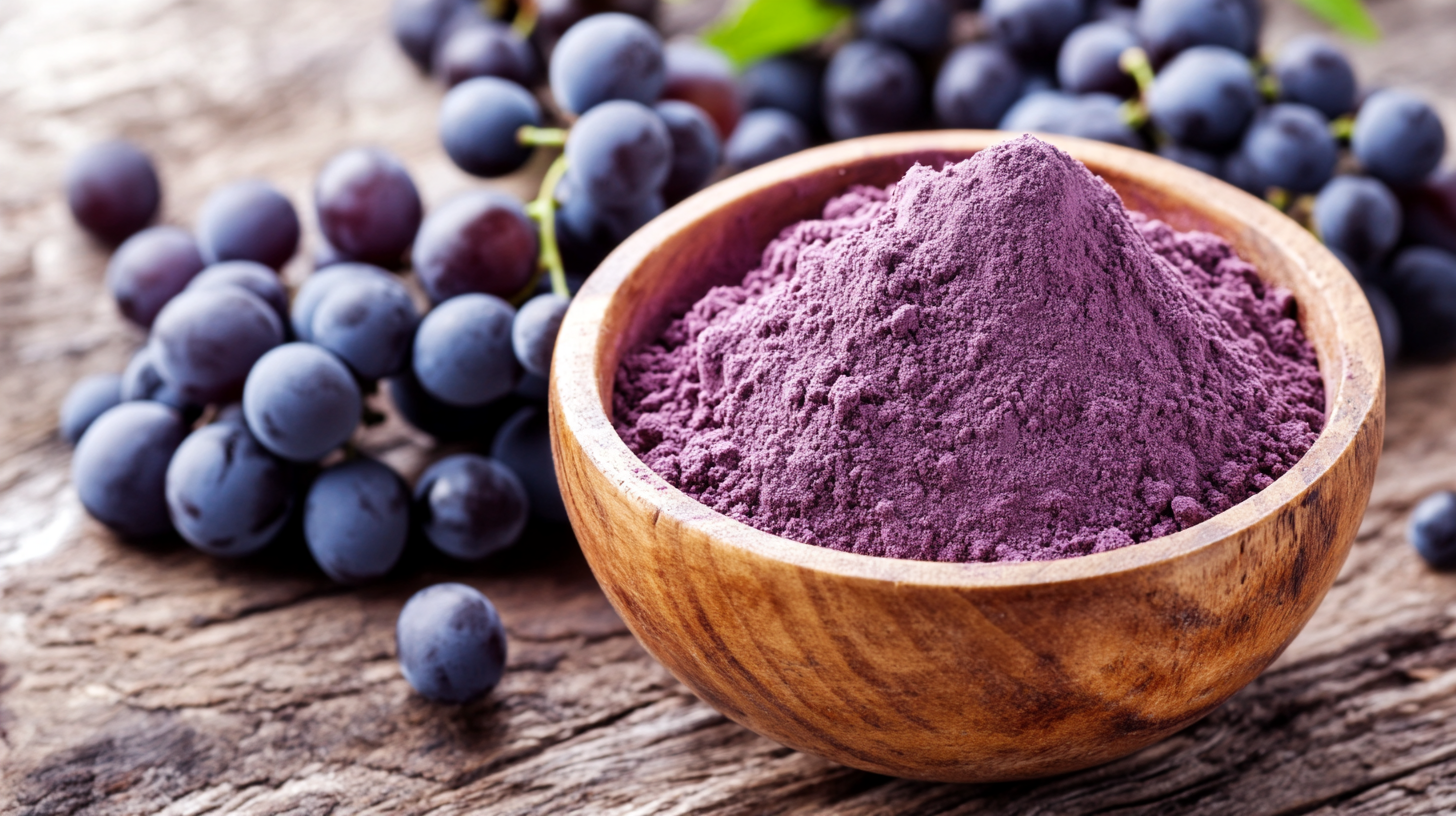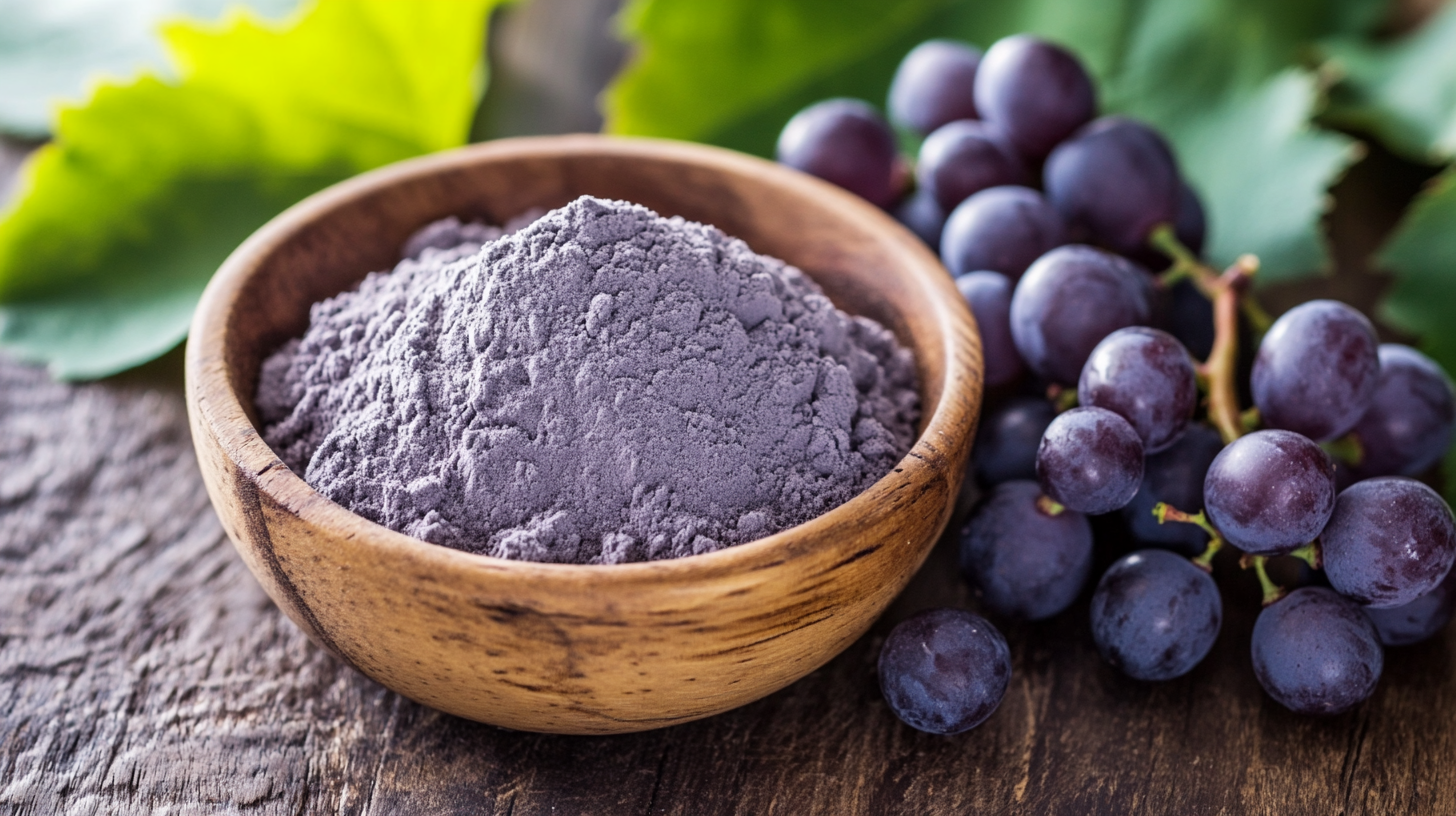Unlocking the Benefits of Grape Fruit Powder for Your Global Supply Needs
In recent years, the demand for natural and versatile ingredients in various industries has surged, with Grape Fruit Powder emerging as a valuable resource. This vibrant powder, derived from the peels and pulp of grapefruits, not only offers a rich source of antioxidants and vitamins but also provides unique flavor profiles that can enhance a myriad of products. As businesses across the globe seek innovative solutions to meet consumer demands, incorporating Grape Fruit Powder into their supply chains can unlock new possibilities for health, flavor, and sustainability.
Moreover, the global supply chain is increasingly focused on the provenance and quality of ingredients. Grape Fruit Powder stands out as an eco-friendly option that aligns with the growing trend towards clean label products. By integrating this powerhouse ingredient, companies can cater to health-conscious consumers while promoting the benefits of natural food additives. This blog will delve into the various applications and advantages of Grape Fruit Powder, showcasing how businesses can leverage it to meet their global supply needs effectively.

Exploring the Nutritional Profile of Grapefruit Powder for Health Conscious Consumers
As health-conscious consumers increasingly look for nutrient-dense alternatives, grapefruit powder emerges as a versatile addition to their diets. With a rich nutritional profile, grapefruit powder is packed with vitamins, minerals, and antioxidants, making it a favorable option for those aiming to boost their overall health. Recent reports indicate a notable decline in U.S. grapefruit juice consumption, down more than 50% since the mid-2000s, highlighting a potential shift in consumer habits towards more concentrated forms of nutrients, such as grapefruit powder. The global 100% juice market is expected to experience significant growth, projected to reach approximately USD 29.99 billion in 2023, with a CAGR of 7.7% from 2024 to 2030. This trend suggests that while traditional juice consumption may decline, consumers are actively seeking convenient ways to integrate the benefits of fruits like grapefruit into their diets. Grapefruit powder stands out in this context, offering a rich source of vitamin C and beneficial phytochemicals, all in a concentrated format that can enhance smoothies, baked goods, and health supplements. In addition to its impressive nutritional benefits, grapefruit powder helps fulfill the demand for versatile ingredients in the ever-evolving food and beverage industry. Its potential applications span across various sectors, catering to health-oriented products that resonate with today's consumers. With the continued interest in wellness and natural ingredients, grapefruit powder not only meets the demands of health enthusiasts but also provides manufacturers with an innovative way to diversify their offerings in a competitive market.

The Role of Grapefruit Powder in Enhancing Flavor Profiles across Food Industries
Grapefruit powder is increasingly being recognized for its potential in enhancing flavor profiles across various food industries. As consumers seek more vibrant and natural flavors, manufacturers are turning to grapefruit powder as a versatile ingredient that not only adds a zesty taste but also delivers a wealth of nutritional benefits. According to a report by Grand View Research, the global fruit powder market is projected to reach $4.74 billion by 2025, with citrus powders, including grapefruit, playing a significant role in this growth.
The unique tartness and slight sweetness of grapefruit make it an ideal candidate for various applications. In the beverage industry, for instance, grapefruit powder is being used in smoothies, juices, and even alcoholic drinks to achieve a refreshing taste. Studies indicate that flavor release is enhanced when utilizing grapefruit powder, which can elevate the overall sensory experience for consumers. Furthermore, the powder's natural antioxidant properties can contribute to health-promoting claims, appealing to the growing health-conscious market.
In baked goods and snacks, grapefruit powder serves as an excellent flavor enhancer that complements both sweet and savory products. With the trend of clean label ingredients on the rise, manufacturers are increasingly leaning toward grapefruit powder as a natural alternative to artificial flavors. A recent Market Research Future report predicted a surge in demand for natural flavor enhancers, indicating that grapefruit powder could become a staple in formulations aimed at meeting consumer preferences for health and sustainability. By harnessing the flavor-enhancing capabilities of grapefruit powder, food producers can not only diversify their product offerings but also connect with a growing demographic of health-aware consumers.

Market Trends: Increasing Demand for Natural Ingredients like Grapefruit Powder in Global Supply Chains
The demand for natural ingredients in global supply chains has seen a significant uptick, driven largely by consumer preferences for cleaner, more sustainable products. According to a recent report from Grand View Research, the global natural ingredients market is expected to reach $46.7 billion by 2027, growing at a compound annual growth rate (CAGR) of 8.8%. Grapefruit powder, known for its numerous health benefits, is a prime example of this trend, serving as a versatile addition across various sectors including food, beverages, and nutraceuticals.
One of the primary reasons for the increasing popularity of grapefruit powder is its high antioxidant content. Rich in vitamin C and other phytochemicals, grapefruit powder can help combat oxidative stress, making it an appealing ingredient for health-conscious consumers. A report by Market Research Future indicates that the health supplement segment of the market is projected to witness a CAGR of 6.4% from 2021 to 2027, further solidifying the position of grapefruit powder as an attractive option for manufacturers looking to meet market demands.
Moreover, the clean label movement continues to influence ingredient sourcing strategies. Consumers are increasingly seeking transparency regarding what goes into their products, leading manufacturers to replace artificial additives with natural alternatives like grapefruit powder. This shift is reflected in the Ethnobotany Research and Applications journal, which emphasizes that natural ingredients not only enhance product appeal but also cater to consumers' preferences for sustainability. As such, businesses in the food and beverage sectors should consider incorporating grapefruit powder into their formulations to align with market trends and consumer expectations.

Grapefruit Powder's Applications: From Dietary Supplements to Functional Foods
Grapefruit powder is emerging as a versatile ingredient in the health and wellness sectors, with applications that range from dietary supplements to functional foods. As consumers increasingly seek natural avenues for improving their health, grapefruit powder stands out due to its unique nutritional profile, which is rich in vitamins A and C, antioxidants, and fiber. These properties make it a valuable addition to various food products aimed at enhancing well-being.
One of the key advantages of grapefruit powder is its role in dietary supplements. Research indicates that grapefruit juice can enhance the absorption of certain nutrients, making grapefruit powder a desirable component in formulations targeting improved nutrient bioavailability. Additionally, the powder's potential benefits extend to weight management and heart health, though caution is advised for individuals on specific medications, as noted in recent reports about grapefruit’s interactions with drugs that lower blood pressure and cholesterol.
The global market for superfoods, including grapefruit powder, is poised for significant growth, driven by rising consumer awareness regarding health and nutrition. According to industry insights, the health food market is expanding worldwide, with products that highlight ingredient transparency and health benefits seeing notable increases in demand. As consumers continue to embrace functional foods, grapefruit powder represents a strategic ingredient for manufacturers looking to capitalize on this trend.
Incorporating grapefruit powder into food products not only enhances flavor but also provides a boost of essential nutrients. As the demand for clean-label and functional ingredients rises, grapefruit powder stands out for its potential to support various wellness applications, making it a worthwhile consideration for businesses in the health food space.
Analyzing the Cost-Effectiveness of Sourcing Grapefruit Powder for Manufacturing Needs
The burgeoning global market for powdered ingredients is witnessing a significant transformation, particularly with products like grapefruit powder coming to the forefront. This shift is driven by a growing demand for natural and healthy food additives, leading manufacturers to explore cost-effective sourcing options. The recent insights into the global powder metallurgy market underline the increasing value of powdered goods, projected to reach $6.38 billion by 2034, highlighting the importance of raw material sourcing in maintaining competitive pricing and product quality.
Grapefruit powder stands out not only for its potential health benefits but also for its role in cost-effective manufacturing. As the analysis of various powder manufacturing processes demonstrates, integrating grapefruit powder into products can optimize nutritional profiles while potentially lowering overall production costs. Manufacturers are encouraged to assess their supply chains and consider sourcing grapefruit powder, factoring in the machinery and operational requirements to enhance efficiency in production.
Additionally, the rising awareness around sustainability and the reuse of materials, evident in sectors like additive manufacturing, offers insights for grapefruit powder sourcing strategies. Companies that adopt holistic supply chain assessments can leverage grapefruit powder’s advantages while ensuring a more sustainable production model. As market demands evolve, businesses that strategically incorporate innovative ingredients will find new avenues for growth and consumer engagement.

